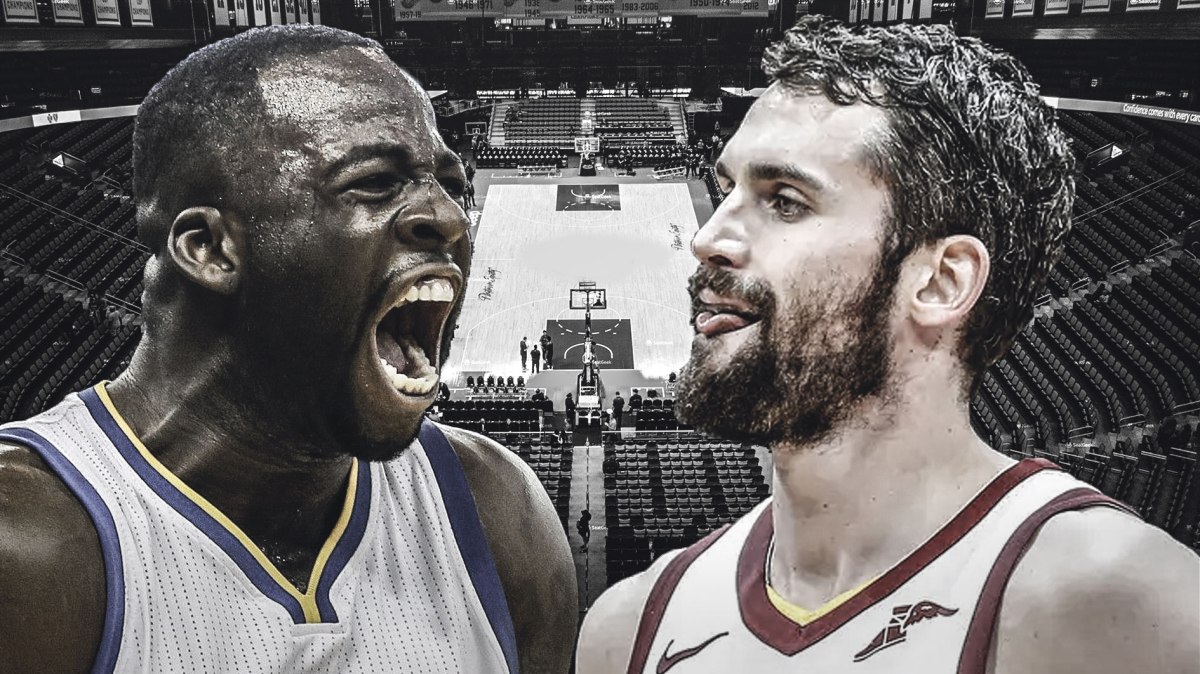The power forward and center matchup between the Cleveland Cavaliers and the Golden State Warriors in the NBA Finals is the most intriguing because the collection of players happen to be the most volatile, and the performance of one team’s bigs could decide a game. Which squad has the upper hand in the post?
Cavs starters
Kevin Love moved into the secondary offensive option role this season after the departure of Kyrie Irving, and he played well for the most part, averaging 17.6 points and 9.3 rebounds, making his fifth All-Star team. Love played at the center position for much of the season, and that’s where he has been during the postseason.
Unfortunately, during the playoffs, Love is shooting just 39% from the field, and was placed in concussion protocol after being hit in the head five minutes into game 6 of the Eastern Conference Finals.
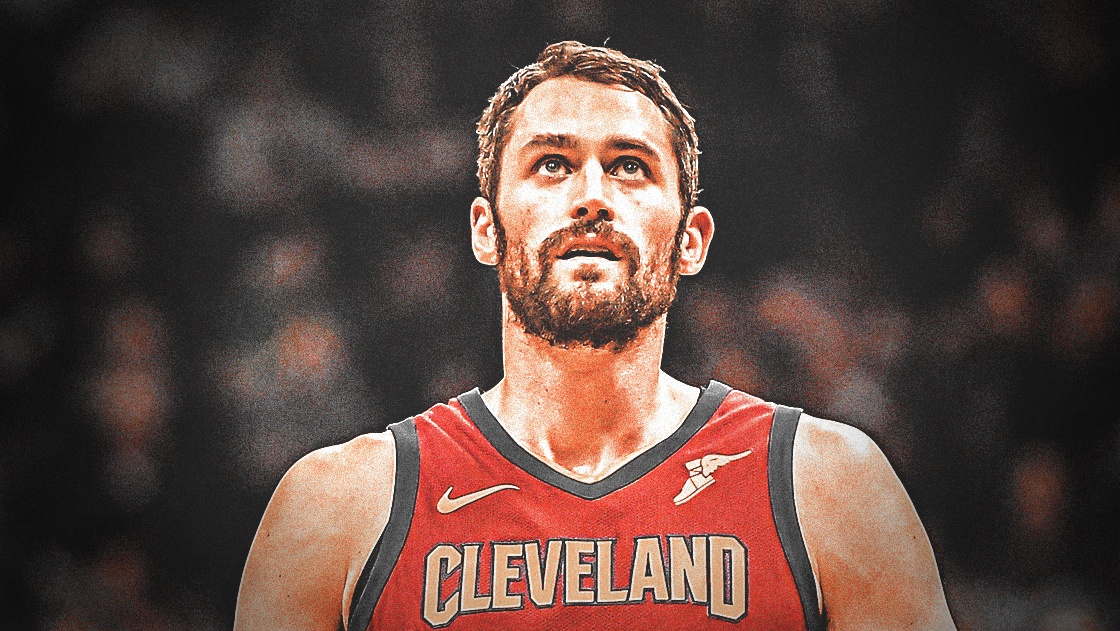
In the past three NBA Finals, Love has struggled against Golden State in a way he hasn’t against any other team. Draymond Green has given him plenty of trouble both on offense and defense. and last year Zaza Pachulia was a tough matchup for him.
Love also benefits more from a slow-paced game, as his transition offense and defense is not great. The Warriors’ offensive strategy is to push the pace and run the court as often as possible, which isn’t good for Love. The Cavaliers should try to slow down the game and get Love more touches in the paint.
After an extremely subpar majority of the regular season, Tristan Thompson began to pick up his play late in the year, and that has continued this postseason. While splitting time with Larry Nance Jr., Thompson had 52 points and 56 rebounds in seven games against Boston. His offensive rebounding gave the Cavs many crucial extra possessions, and his screens were vital in giving the Cavaliers’ shooters more space to work.
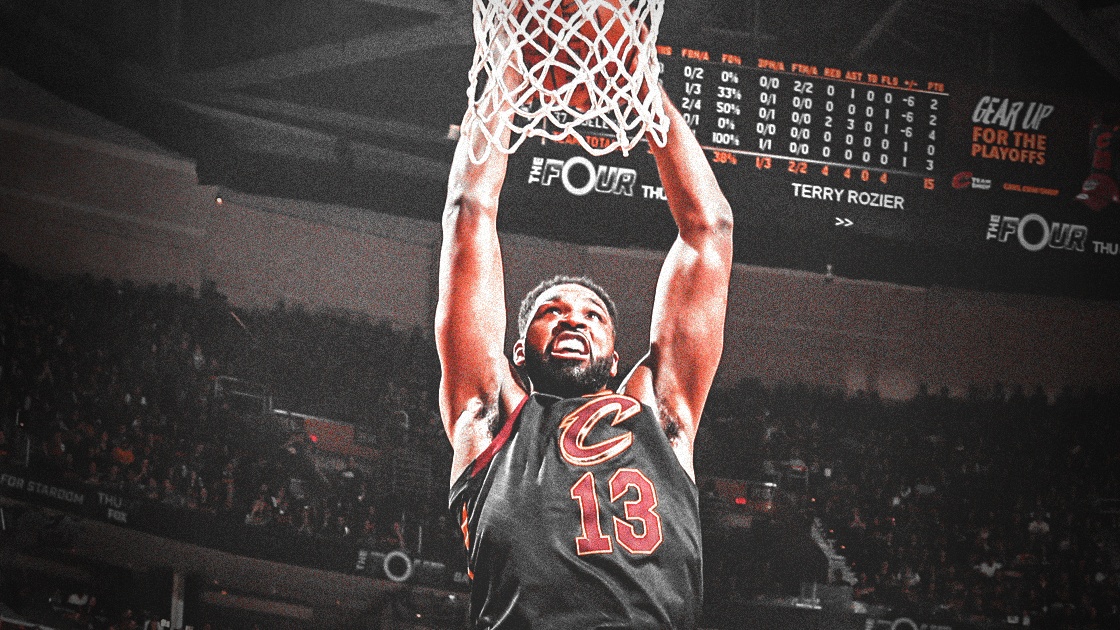
Thompson also played solid defense on Al Horford, and his ability to switch onto smaller players on the perimeter gave Cleveland more freedom on the defensive end.
Thompson will need to replicate his performance from the 2015-2016 NBA Finals for Cleveland to have a shot at winning this year. Love will also have to be much better than he has been. The Cavs desperately need these two players to perform well.
Cavs bench
Cleveland has three reserve centers, but only one is currently in the rotation. That’s not likely to change unless there is a significant injury to Love, Thompson, or Nance, or if two of the three are in foul trouble.
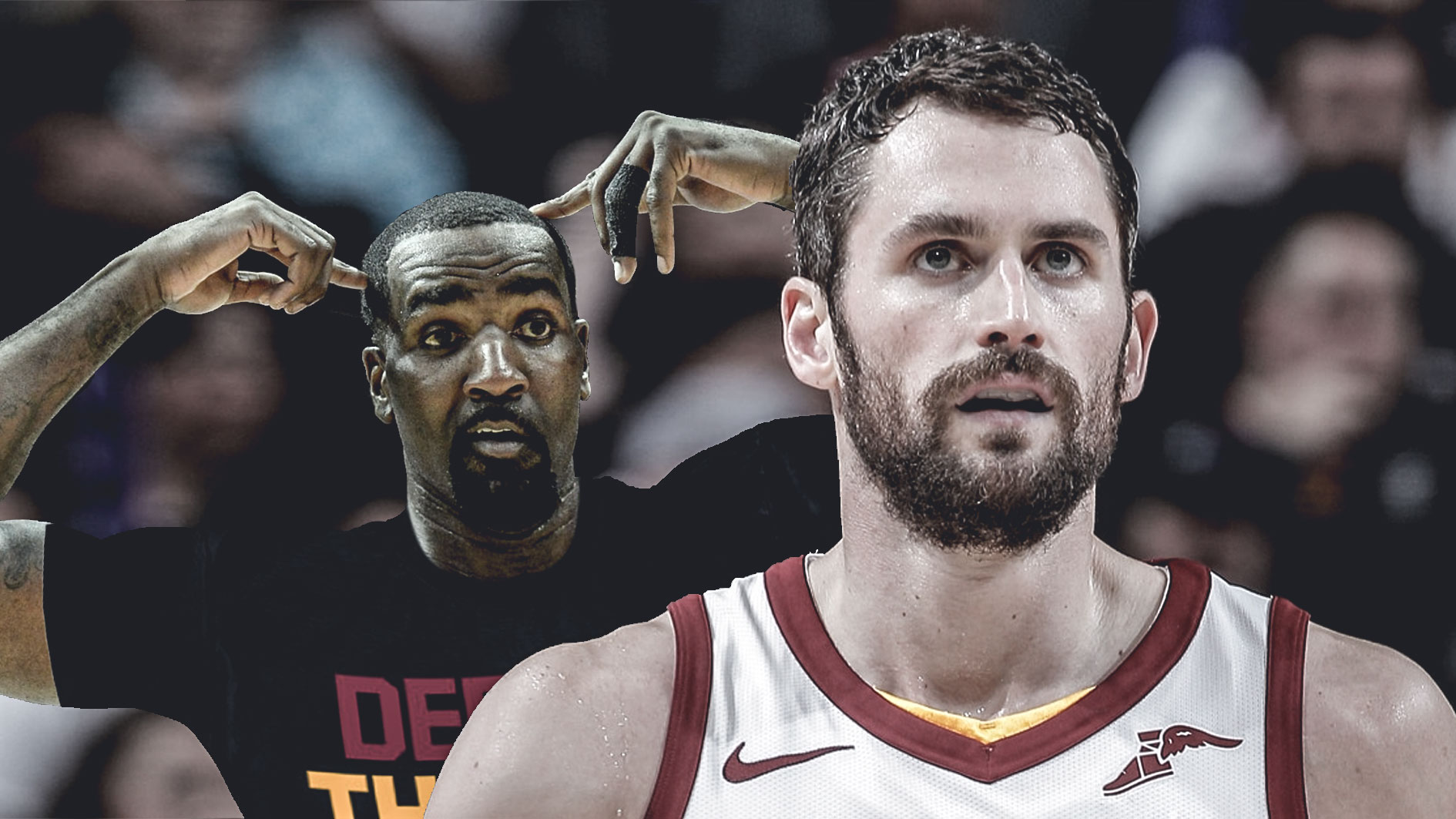
Kendrick Perkins was signed late in the season to give the Cavs more veteran leadership, and he has filled that role well. He has not seen the floor this postseason, and has only been active for four games during this stint with the Cavaliers, logging 14 minutes in an April matchup with New York.
Ante Zizic played sparingly during his rookie season, but he had some very nice moments, including a 15 point, seven rebound, two block performance in March against the Lakers. He has a lot of future potential as a very good center, but much like Cedi Osman, his playing time has been almost nonexistent this posteason due to his lack of experience.
Since being acquired from the Los Angeles Lakers, Larry Nance Jr.’s play has been solid, but also sporadic and inconsistent. A large part of that is his tendency to get into early foul trouble. He is a very active and aggressive defender, sometimes too aggressive, which leads him to pick up multiple fouls in a very short amount of time. This is especially apparent when he is defending dangerous shooters, so he will have to be very careful if he is switched onto Stephen Curry.
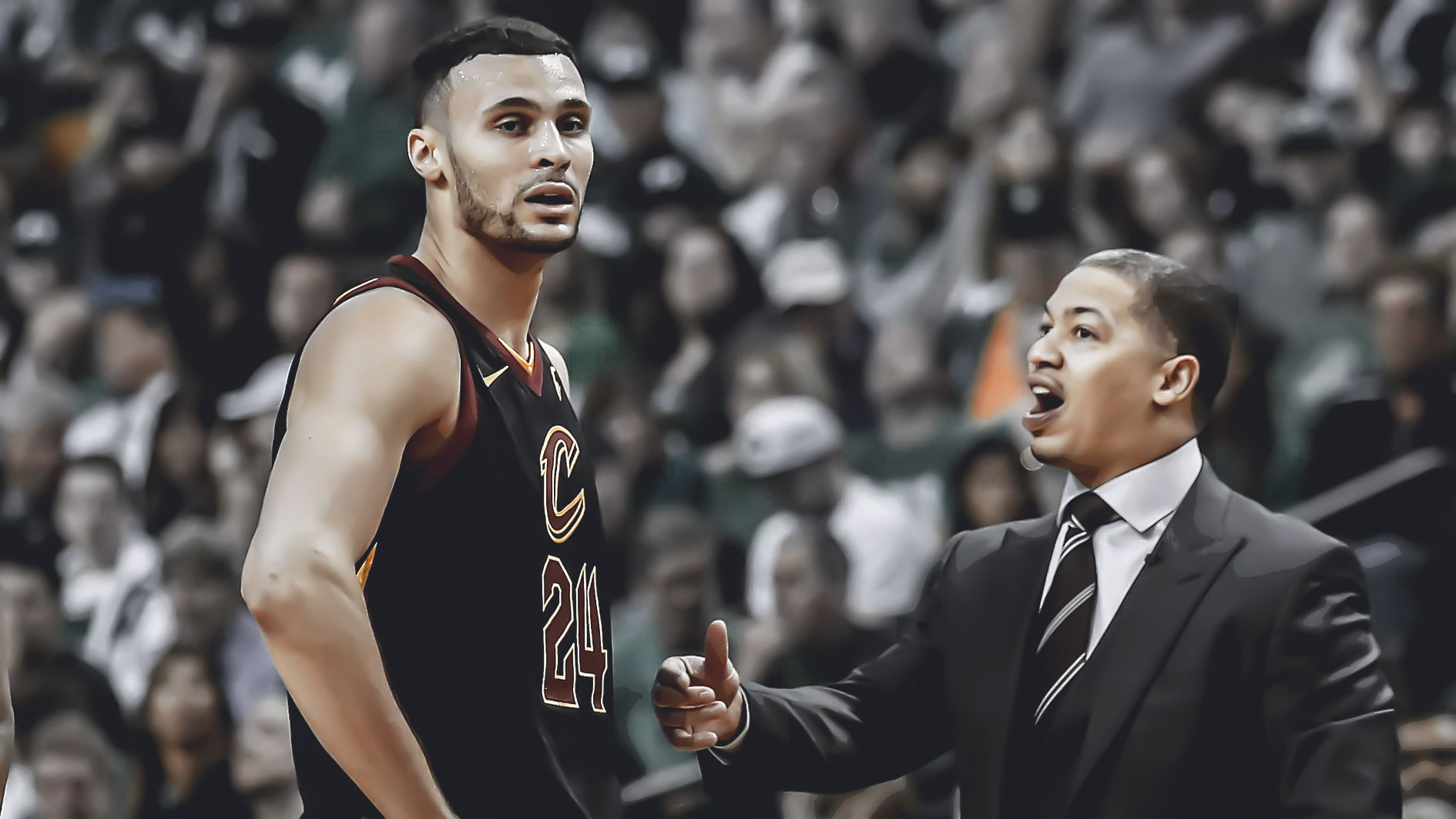
When Nance is matched up with Draymond Green, it will be interesting to see who wins their battles. Nance has the size advantage, but Green matches or outclasses Nance in strength and quickness, as well as shooting range. Both players commit many fouls, so that will also have a big impact on deciding games.
Warriors starters
Draymond Green continues to be the gear that makes the Golden State machine work. He is averaging 11.1 points, 11.6 rebounds, and 8.1 assists per game this postseason, while playing tenacious defense.
Nance, Thompson, Love, James, and Jeff Green will have their hands full trying to slow him down. If there is one weakness Green has that the Cavs can exploit, it’s his three-point shooting. In last year’s playoffs, Green shot 41% from beyond the arc. This year, that number has plummeted to just 28%.
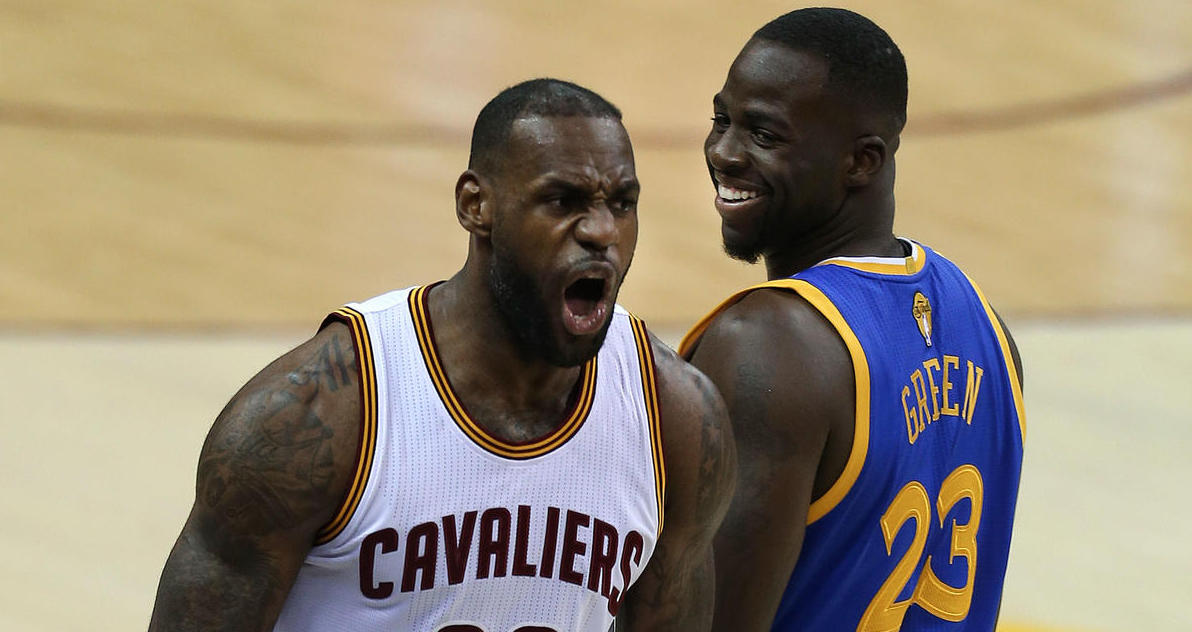
Ron Schwane/The Associated Press
The Warriors thrive on the three-ball, so if the Cavaliers can force Curry, Thompson, and Durant to pass the ball to Green on the perimeter, and allow Green the space to take the shot, they can only benefit, at least going by percentages.
Third-year player Kevon Looney has seen his role increase dramatically from the regular season to the playoffs, as he is playing about seven more minutes per game. He usually functions as Golden State’s center when he is on the court, despite standing just 6-foot-9. He is not much of an offensive threat, but his versatile defense has allowed him to carve out a rotation spot nonetheless. Each of Love, Thompson, and Nance will have a size advantage over Looney, which bodes well if the Cavs decide to slow the game down.
Warriors bench
Veteran David West hasn’t played much this postseason, especially in the Houston series, but Cleveland knows first-hand how much of a nuisance he can be. West is a physical player who is a skilled interior scorer and rebounder, but also has some nice range on his jumpshot. If the Warriors decide to play him to increase their physicality, Larry Nance Jr. is the best option to counter him.
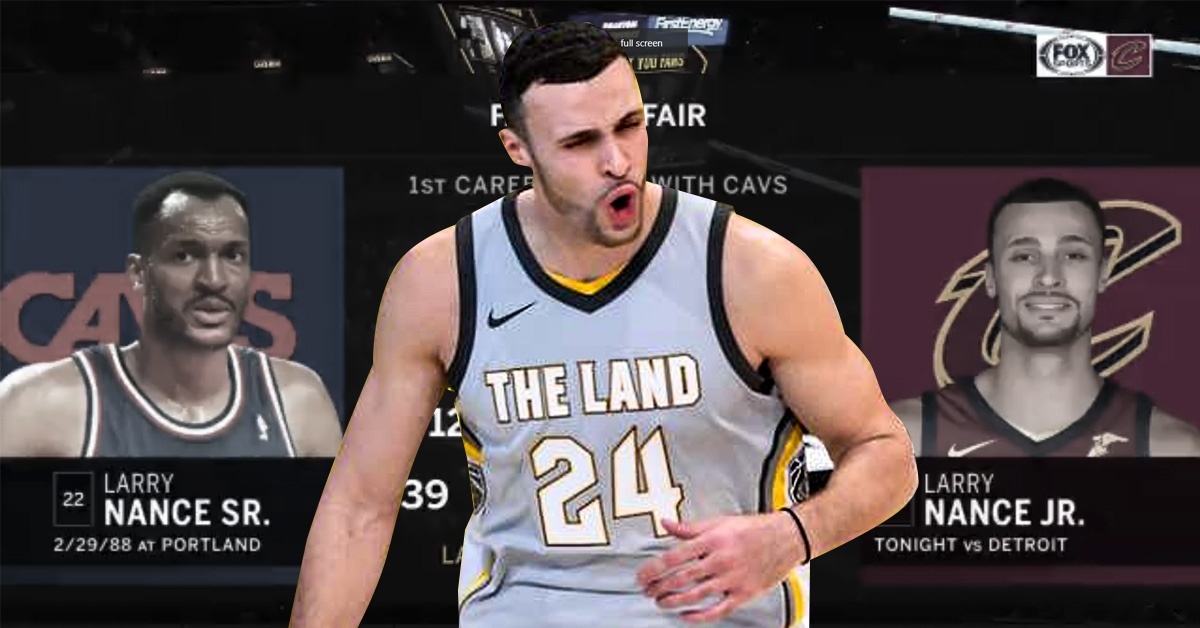
After playing a significant role last postseason, Zaza Pachulia has been relegated to the end of the bench this year. He has played in just five playoff games, never logging more than 5:18 a night. His size and lack of athleticism and shooting ability make him a poor fit for the Warriors’ play style, and he has been overtaken on the depth chart by both Looney and Jordan Bell. If the Cavaliers decide to play slower this series, Pachulia could make his way back into the rotation.
The same goes for JaVale McGee, who played just three minutes in Golden State’s Game 3 blowout victory over Houston. McGee gives the team more athleticism and scoring than Pachulia does, so he could possibly get a look even sooner.
Second-year man Damian Jones has only seen action in four games this postseason, and is the definition of a reserve player. Rookie Chris Boucher is much the same, although he has just one minute of NBA experience this year.
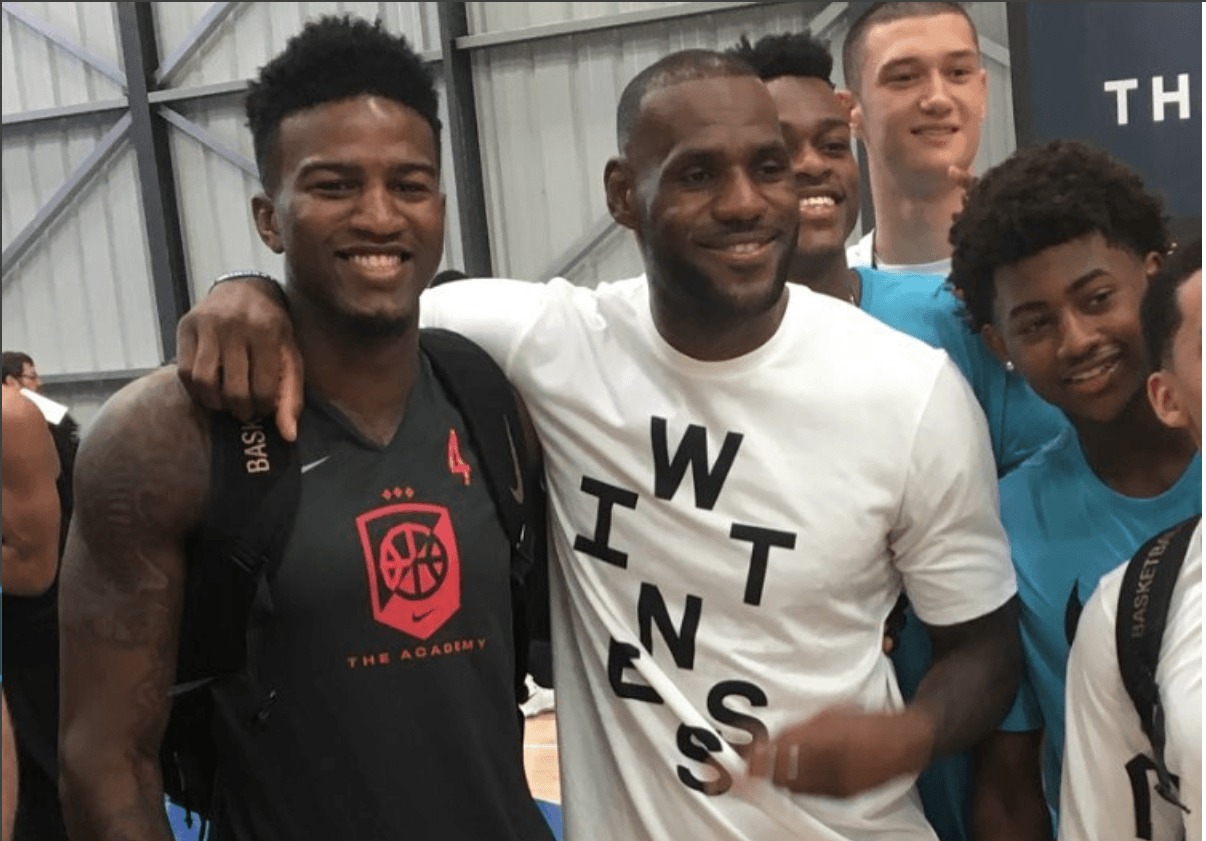
Jordan Bell/Instagram
When the Warriors traded up to select Jordan Bell in last year’s draft, he was characterized as a steal who made make a big impact with his new team. That has been the case, as the rookie is averaging nine minutes per game in these playoffs, and was particularly instrumental in slowing down Houston’s Clint Capela.
Bell is a very good defender, and his athleticism makes him playable for long stretches even if he isn’t involved much offensively. The matchup between he and Kevin Love will be one to watch.
Verdict
On paper, the Cavaliers should win this matchup because of Kevin Love. But he has not played well against the Warriors in the past.
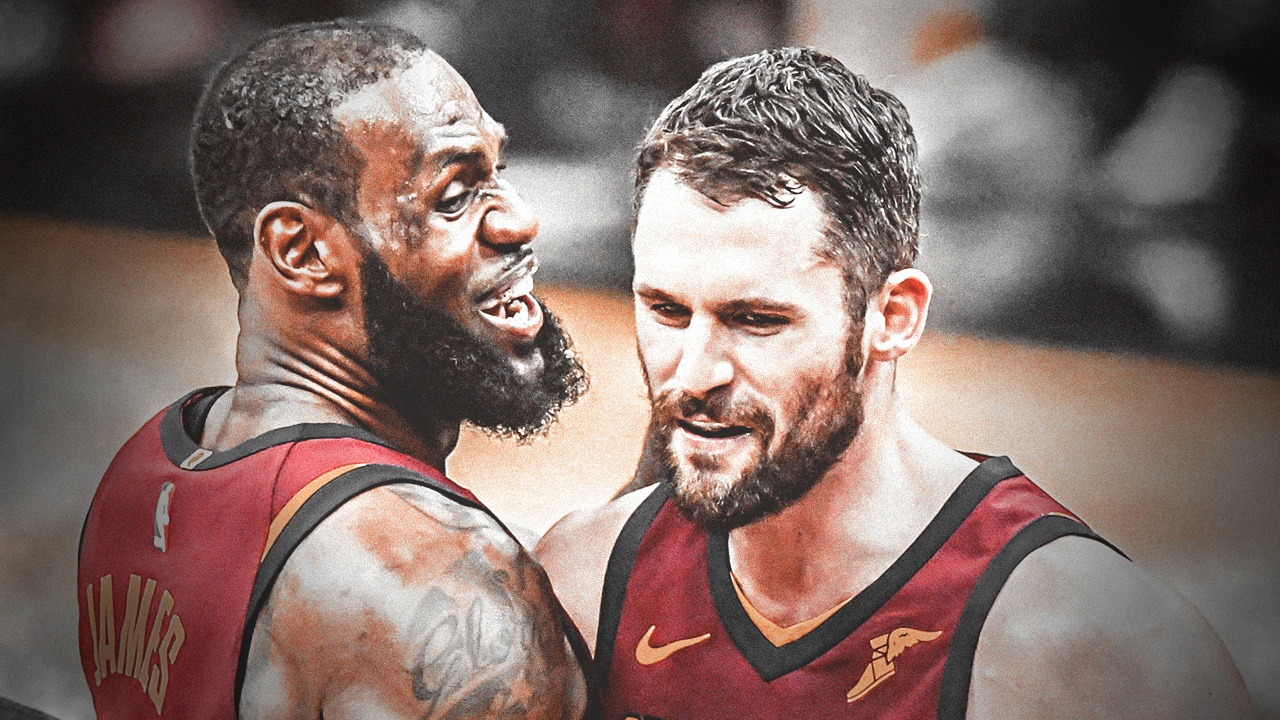
Golden State has more playable big men, but Cleveland’s three have contributed more. Both team’s personnel fit their ideal play style this series; The Cavs would be better off slowing the game down and using their size to their advantage, while the Warriors want to run up and down the court, exposing matchups.
Right now, the matchup is almost dead even, and it’s going to come down to how Steve Kerr and Ty Lue gameplan. The strategy will be incredibly important, as it will have implications not only for this position group, but for the entirety of both teams, and that could decide the series.
